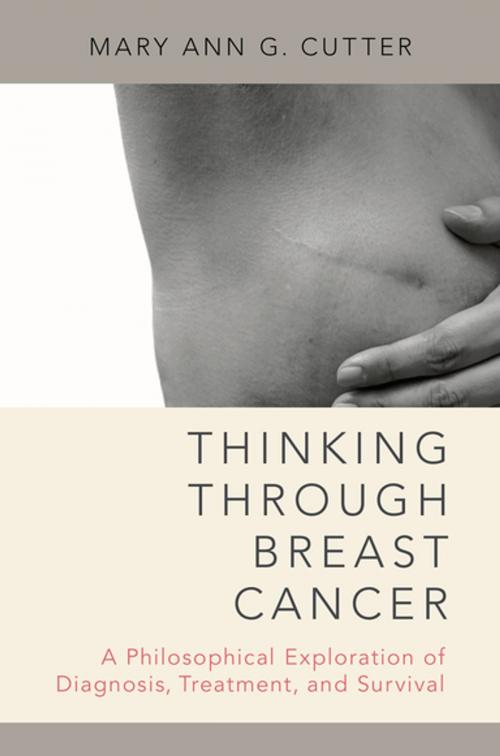Thinking Through Breast Cancer
A Philosophical Exploration of Diagnosis, Treatment, and Survival
Nonfiction, Health & Well Being, Medical, Specialties, Oncology, Science & Nature, Science, Other Sciences, Philosophy & Social Aspects, Religion & Spirituality, Philosophy, Ethics & Moral Philosophy| Author: | Mary Ann G. Cutter | ISBN: | 9780190637057 |
| Publisher: | Oxford University Press | Publication: | March 6, 2018 |
| Imprint: | Oxford University Press | Language: | English |
| Author: | Mary Ann G. Cutter |
| ISBN: | 9780190637057 |
| Publisher: | Oxford University Press |
| Publication: | March 6, 2018 |
| Imprint: | Oxford University Press |
| Language: | English |
Anyone who has been diagnosed with breast cancer or knows someone who has been diagnosed with breast cancer recognizes that cancer raises a host of questions concerning its nature and how we treat it. Such questions frame the difficult decisions that patients must make about their treatment and care. Thinking Through Breast Cancer is a philosophical investigation of how breast cancer is described, explained, evaluated, and socialized in medicine. Written by a breast cancer survivor, the book interweaves personal experience with a systematic breakdown of key and highly pertinent philosophical concepts, and brings to light insights that emerge in metaphysics, epistemology, ethics, social and political philosophy, and bioethics. Further, it is an investigation of the ethical implications of understanding breast cancer. Cutter seamlessly combines clinical information with philosophical analysis and makes recommendations as to how we can navigate the complex and, at times, uncertain terrain of breast cancer knowledge and care. In this way, the book is not simply a survey of what we know about breast cancer, but a personal search for guidance about navigating the complex, confusing, and frightening terrain of breast cancer diagnosis, treatment, and survival.
Anyone who has been diagnosed with breast cancer or knows someone who has been diagnosed with breast cancer recognizes that cancer raises a host of questions concerning its nature and how we treat it. Such questions frame the difficult decisions that patients must make about their treatment and care. Thinking Through Breast Cancer is a philosophical investigation of how breast cancer is described, explained, evaluated, and socialized in medicine. Written by a breast cancer survivor, the book interweaves personal experience with a systematic breakdown of key and highly pertinent philosophical concepts, and brings to light insights that emerge in metaphysics, epistemology, ethics, social and political philosophy, and bioethics. Further, it is an investigation of the ethical implications of understanding breast cancer. Cutter seamlessly combines clinical information with philosophical analysis and makes recommendations as to how we can navigate the complex and, at times, uncertain terrain of breast cancer knowledge and care. In this way, the book is not simply a survey of what we know about breast cancer, but a personal search for guidance about navigating the complex, confusing, and frightening terrain of breast cancer diagnosis, treatment, and survival.















